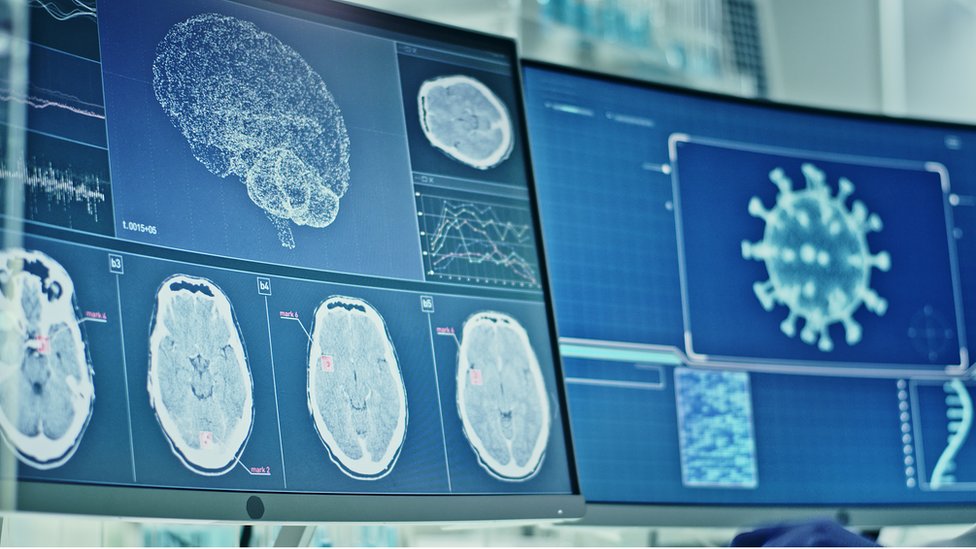Jakarta –
As Clarissa Yasuda prepares to recruit dozens of individuals for scientific research on the prolonged illness of Covid, the neurologist must also deal with the impact of Covid on his brain after contracting the coronavirus in August 2020.
“I didn’t return to normal, I didn’t return to the pre-Covid state in terms of cognitive, concentration, dexterity, and flexible thinking after a year and a half, I think I could return 30% or 40%. However, I didn’t really recover 100 %,” said Clarissa Yasuda, a 46-year-old neurologist.
“I’m not the same person, it seems my IQ scores have dropped,” continued the woman who is predicated as a professor at the Campinas State University School of Medicine to BBC Brazil.
“This disease makes me very uncomfortable. After a year and a half, with great effort, strict discipline, combining many things, I feel a little better. I’m worried [kemampuan otak] I can’t fully recover,” he said.
Also read:
Yasuda admits that his expertise in neurology made him “realize the subtle differences” in his brain abilities and functions.
“I see two sides,” he said, referring to his experience as a neurologist and his personal experience in dealing with prolonged Covid.
Covid is prolonged
“Cognitive dysfunction” is one of the effects of prolonged exposure to Covid, according to the World Health Organization (WHO). Other effects include fatigue and shortness of breath.
WHO said, these symptoms usually appear within three months of contracting Covid.
After that, these symptoms usually last for the next two months.
“Symptoms can reappear after recovering from the acute phase or continue to appear since the beginning of the illness” [Covid-19]. These symptoms can also fluctuate or reappear over time,” the WHO said.
Researchers around the world have been trying to understand how and why Covid-19 can leave traces on the nervous system, even in previously perfectly healthy people or those with mild symptoms.
A number of studies, including one by Clarissa Yasuda, have demonstrated the long-term neurological impact of Covid through patient reports, various scans, various cognitive tests, and autopsy sequences.
More sports
Yasuda shared that when he contracted Covid in 2020, his symptoms were mild without breathing problems. However, she was dehydrated and had digestive problems.
Other symptoms appear later.
Yasuda admitted that he was often sleepy during the day, tired easily, had difficulty remembering, and was unable to do tasks with the same workload before contracting Covid.
To get around this, this neurologist tried to adapt. For example, sleeping one hour or one and a half hours longer than the duration of sleep before contracting Covid.
Then, when going to do activities that occupy his mind such as doing statistics, Yasuda makes sure he has enough rest and has plenty of time to finish his work.
Yasuda believes “physical activity helps the brain work”. Therefore, he intensified his sports in the form of Pilates, fitness training, swimming, and occasionally running.
The hypothesis is that a lack of oxygen could increase the activity of the hippocampus, a part of the brain that is important for memory and other functions.
However, this female professor warned that the series of activities was her personal experiment and it still needed to be proven through scientific studies.
Also read:
Clarissa Yasuda believes “physical activity helps the brain work”. Therefore, he intensified his sports in the form of Pilates, fitness training, swimming, and occasionally running. (Getty Images)
Apart from physical activity, Yasuda is looking for other ways by sharing ideas with a psychiatrist friend who is also experiencing cognitive changes due to the prolonged Covid-19 outbreak.
For several weeks, for example, Yasuda has used the Lumosity app, which contains math and memory games, to train her brain.
Due to his current condition, he is no longer able to do several things at once, aka multi-tasking. This frustrated him.
“Now I have to complete one task, then start another,” he lamented.
“I missed a lot of things, like projects I wanted to finish but couldn’t.”
What are the results of scientific studies?
At the end of January, the journal Science released a review article of two neuroscientists reviewing the impact of Covid on the nervous system.
Also read:
 Getty Images After suffering from Covid, the most common symptoms experienced by patients are fatigue, headaches, and memory problems.
Getty Images After suffering from Covid, the most common symptoms experienced by patients are fatigue, headaches, and memory problems.
Avindra Nath of the Research Institute for Neurological Disorders and Stroke in the United States, and Serena Spudich of Yale University School of Medicine, said the post-Covid effects include impaired concentration, headaches, sensory disturbances (such as loss of smell and taste), depression, and “even psychosis.” like hallucinations.
The two scientists wrote that “there is no certainty” as to how long these problems will last.
The article cites a number of studies that performed a series of tests on cerebrospinal fluid (CSF).
From there, they found evidence that the brain is more affected by the coronavirus due to excessive body responses (such as inflammation and antibody production) than the virus’ direct attack on the body’s organs.
A number of MRI scans also showed some people with Covid-19 had ruptured blood vessels that supply blood to the brain. The CT scan (CT scan) showed reduced metabolic activity in prolonged Covid patients.
In December 2021, Clarissa Yasuda and several colleagues from Campinas State University, Brazil, published an article (which has not been reviewed by other scientists). The article analyzes the condition of 87 Covid patients with mild symptoms who are being treated at Campinas
Two months after contracting Covid, the most common symptoms experienced by patients were fatigue (43.7% of respondents), headache (40%), and memory impairment (33%).

The impact of Covid on the brain is caused by an excessive body response rather than a direct attack of the virus on the body’s organs. (Getty Images)
In a neuropsychological evaluation through a series of tests and questionnaires, Yasuda and his colleagues detected symptoms of depression in 18% of respondents and excessive anxiety in 29%.
When analyzing the MRI scans, the scientists also found changes in the brain associated with impaired concentration and cognitive flexibility.
Impact of the Omicron variant
The findings in Yasuda and his team’s research are preliminary results in research on the impact of prolonged COVID-19 on the nervous system.
The research team evaluated more than 500 people and collaborated with other research groups in Europe.
They estimate that the study of the topic will take place over the next five years.
As the research progressed, Yasuda became increasingly concerned about the prolonged impact of Covid on the workforce and the increasing number of cases of the Omicron variant.
“I hope the mild symptoms of the Omicron variant have no impact on the nervous system later in life. Because if so, the number of [orang yang terpapar] will be a lot,” he concluded.
Also check out ‘Up Again, Indonesian Covid-19 Cases Add 61,488 as of February 23’:
(ita / ita)
–


